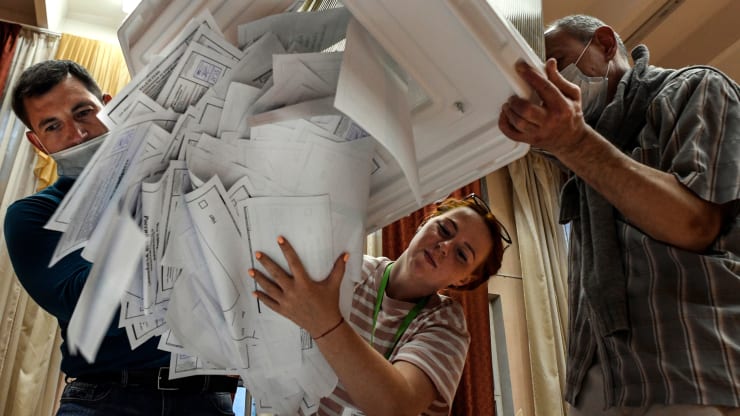20 years of Putin rule and still counting. The Russian government recently proposed around 200 amendments which the experts say was surprising, including a boost in pension and minimum wages, ban on gay marriage and officials holding dual citizenship, preservation of the language, culture and history but above all allowing the 67-year-old communist president who has also served as a prime minister(2008-12) to hold power for two more six-year presidential terms(i.e. till 2036) after the end of his second term in 2024.
This consequential decision has received wide criticism as the same won’t be applied to any other president in future. Oppositions have denounced their vote saying Putin’s motto is to be “the president for life”, which the president denies. The monitoring of the seven-day voting proved to be a bluff due to the COVID-19 pandemic. The denunciation continued when Sergey Radchenko, a cold war historian mentioned that “the referendum was symbolic since the electoral system is falsifying and it’s importance is merely to provide a veneer of legitimacy for a constitutional change which will allow Putin to run again in 2024.”

How diverse and accepted the modifications actually are? On studying it’s revealed that the developments brought are mostly conservative in nature from protecting the historical truth of the great patriotic war, barring senior officials from holding foreign passports, overseas residency and bank accounts, banning same-sex marriage to referring to Russia’s faith in God as handed by their ancestors. While certain aspects are related to providing welfare and stability to the weaker ones by improving minimum wages and so which gained popularity among Russians considering better livelihood environment and just allowing the president to win a soft spot.
What should be considered here is that through the amendment a person would be eligible for only two terms of the presidency while replacing the “two consecutive terms”. Putin would be potentially ruling the country for the next 16 year (until 2036) while when he steps down no future president would have access to powers like him and consecutive terms of course until further alterations are brought and the ruling patterns are amended.